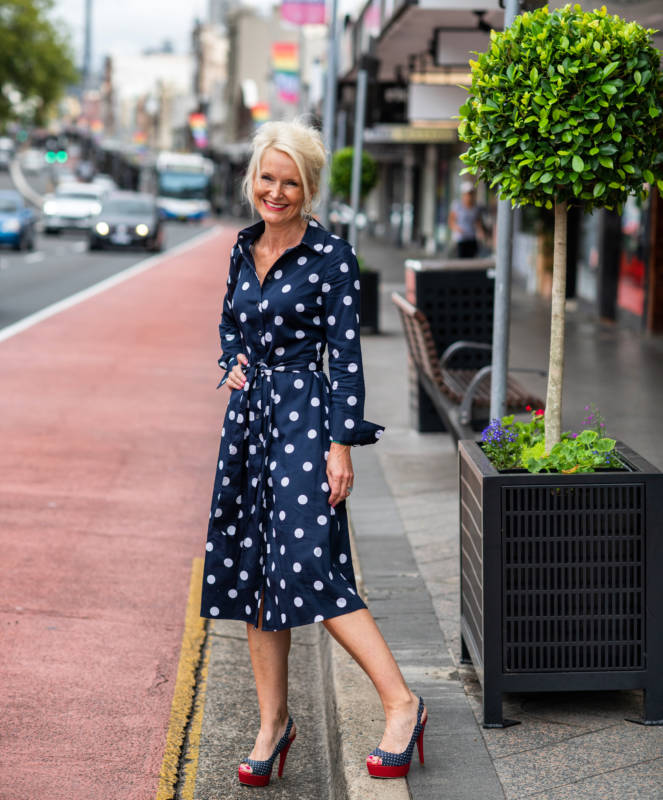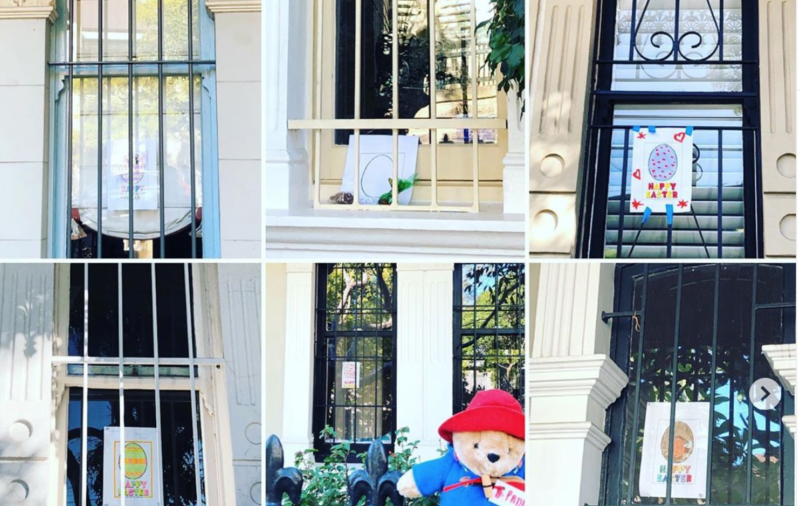This article was updated on 7 March, 2023. It discusses collective grief and Covid-19.
One of the good things to come out of the collective grief from the Covid-19 crisis is the realisation of the value of our local community. Yes it’s marvellous that before this, because of technology, we all got to know the wider world so much better.
But now it’s the turn of our own communities to reap the benefits, with neighbours reaching out to each other, using digital platforms to cross the back fence.
How does this link to ‘a good death’? It means we can secure a natural, easily gathered network, even if only a tiny one (size doesn’t matter), to confidently come together to honour lives, even the quietly lived and isolated ones in our communities, when the time comes.
We’re asking people in different communities what grief and collective grief has taught them and what they are learning from Covid-19. The answers are rich indeed.
Here is Harriet Price’s story. Good Grief! has been very impressed by the positive, upbeat way Harriet has worked in her local community to make sure no-one is left behind in the Covid-19 crisis. Of course there are many examples of this response everywhere and all over the world, and that is heartening. But by sharing Harriet’s story, we can keep sharing ideas about how to do this.
Harriet is one of 15 elected councillors on the Woollahra Municipal Council, representing the Paddington Ward. We put two questions to Harriet: “What has grief taught you?” and “What is Covid-19 teaching you?”. Here are her responses.
What has grief taught you?
I’m fortunate, in that I’ve never really suffered the grief from the death of a really close loved one, such as a mother or father or God forbid, a child.
But my mother suffers from Bipolar Disorder and suffers extremely debilitating periods. At these times she’s hospitalised. Mum is going through one of these periods at the moment. Whenever Mum gets unwell I go through what I realise is a mini form of grief for her. Thankfully she is alive but it often seems as though we’ve lost her and that she is remote.
We can’t be with her in her illness state (and even more so at the moment because the hospital is in lock down and no visitors are allowed). These emotions are similar to feelings of grief. We are so blessed that mum is still with us and she will recover but the feelings of grief are very similar – helplessness, anger, immense loss and pain for her.
The silver lining is that Mum is very open and honest about her condition, because she believes in de-stigmatising mental illness. And that’s very positive.
Given Mum’s experience, I’m well versed In mental health issues and I’m very aware – and afraid – of the mental health crisis that will start to flow from the pandemic, and these will last for a long time after the social restrictions have passed.

What is Covid-19 teaching you?
I feel that we are all experiencing a form of ‘collective grief’ over Covid-19 and its impact on our communities. There are many in our communities who face challenges already – even without the unprecedented event of Covid-19: parents isolated with small children, the very elderly and the marginalised. And then there is the serious and looming crisis of a significant increase in domestic violence – families are now trapped at home with their perpetrators and have more limited means of leaving these circumstances.
So grief has wide applications right now. We can see this on the television, as communities just like ours, deal with death on a daily basis. But we also feel grief over our loss of the sense of the world as we knew it, and self-isolating to try to protect ourselves, our families and others, also causes a certain kind of grief.
During these times we’re seeing the best of people – and also the worst. I’m choosing to focus on the best in people and highlighting their small gestures of kindness, compassion and connection, that’ll get us through.
I’m stocking up as much as I can on the compassion side because I think that old adage “we need to focus on the positive” has never been needed more than now.
We are social beings primarily and the isolation imposed by Covid-19 makes us more hungry for connection.
Positivity can come about by doing small things for others and also comes with benefits for everyone. I don’t know whether you’ve ever heard of the expression ‘Helper’s High’ but that’s what I’m encouraging my community to search for right now. There are ways we can achieve this by helping each other, even though we’re all living in isolation.
Certainly for me personally, I get the sense of satisfaction that comes from ‘doing’ things for others. I want to be one of the those ‘doers’.
My sense of community has developed over a long period of time. When my children were very young I was fortunate to be able to step away from my career as a lawyer and stay home with them. I had a terrible sense of loss of connection from the wider world because I was no longer working. So I decided to do something about that and the way to do this was through community, by being part of the community groups where I live.
So I got involved and with fundraising and became a representative of the parent’s association at my boys’ preschool (which in a lovely turn of events was where I also went to preschool too). I then volunteered at the boys’ local primary school and was President of the Parents & Citizens Association for many years. When the boys went to high school, I continued those strong social connections by becoming a local councillor for Paddington.
Because of my long connection with Paddington, I know lots of people in our community – and how they’re suffering right now. I know who runs our local small businesses that are impacted by the Covid-19 restrictions, I know the baristas and restaurant workers, I know the teachers, the school crossing supervisor as well as all the parents attempting to home school their teenagers or care for toddlers when the playgrounds are all closed.
I can use my role in the community to reach out to those people and encourage others to do the same. We can all help each other to keep connected in a time when social isolation is required. We can all help maintain connections.
Covid-19 is making me determined to make the most of what little opportunities I can. When I’m out walking I speak to people – observing social distancing, of course – to find out what’s happening in their lives and advocate for them. With the more restrictive physical distancing measures now in place, the opportunity for a quick chat is even more limited.
That’s why I’m documenting lots of little ways we can still stay connected. The ‘Paddington Bear hunt’ is one such initiative – it started overseas and is now popular throughout Australia.
Households and small business owners place a small teddy bear and drawings of rainbows in their windows as a sign of solidarity and community. When going on small outings our youngest residents (and plenty of young at heart residents) have fun ‘spotting’ these bears and rainbows.
The hashtag #paddotogether is becoming popular on Instagram – as a way of connecting the neighbourhood digitally.
The Paddington business community has also installed a colourful community wall in the heart of the FiveWays village. Snapping a photo in front of the wall on the return home from the supermarket or whilst out exercising is catching on. There are plans to install other community walls throughout Paddington as the trend gains popularity.
So COVID19 is teaching me that small gestures that create a sense of goodwill and belonging will hopefully go some way to keeping us connected despite being physically apart.
Follow the Paddington Bear hunt on instagram at:https://www.instagram.com/p/B-3Y1Ghj53D/
For We love Five Ways Paddington, go to: https://www.instagram.com/p/B-0Ezr9j7kh/
Harriet’s instagram hashtag is @priceforpaddington.

And from child like to children themselves, Time has shared ‘A year full of emotions. What kids learned from the pandemic.’ A great read and video.
The McKell Institute has reflected on both grief and covid and the reforms required for our world to adapt on their panel Is big reform dead post covid? Well worth a watch.
